Colombia govt., FARC to ink final peace deal this month
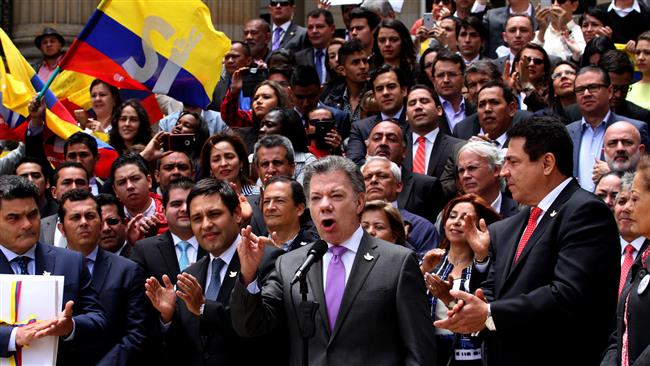

Colombian President Juan Manuel Santos says his government will formally sign a historic peace agreement with the Revolutionary Armed Forces of Colombia (FARC) later this month.
“Peace will be signed on September 26 in [the Colombian city of] Cartagena,” Santos said in a speech on Friday, adding, “This is perhaps the most-important announcement I’ve made in my entire life.”
FARC leader Timoleon Jimenez also tweeted the date and location of the signing, describing it as “the foundation for building #peace.”
Several Latin American leaders as well as Spanish Prime Minister Mariano Rajoy are expected to attend the signing ceremony in Cartagena.
After almost four years of negotiations in the Cuban capital city of Havana, the Colombian government and the FARC rebels reached a final peace accord last week and declared a definitive ceasefire, bringing to an end 52 years of hostilities.

Under the deal, the FARC will have 180 days to demobilize, disarm and relaunch itself as a political party, in a process that will be monitored by the UN.
The agreement must still be endorsed by the Colombian people, who will vote on the deal in a nationwide referendum scheduled for October 2.
To be ratified, the peace deal must secure “yes” votes from 4.4 million voters – 13 percent of the electorate.
The Colombian citizens will vote on the question: “Do you support the final accord to end the conflict and build a stable and lasting peace?”
The latest survey conducted for El Tiempo newspaper and W Radio found that 59.5 percent of the Colombians would vote “yes” in support of the agreement, compared to 33.2 percent who are opposed to it, while 4.7 percent are undecided and 2.6 percent have no opinion.
On the rebel side, the accord must be ratified at FARC’s 10th national conference, which is due on September 17-23. FARC said in a statement that the event would be the group’s “last meeting with weapons … ratify the peace agreement and transform FARC into a legal political movement.”
The rebel group, which took up weapons in 1964 to fight against deep economic and social inequalities, now controls large swathes of Latin America’s third most-populous country. The conflict has left 260,000 people dead, 45,000 missing and 6.9 million displaced.
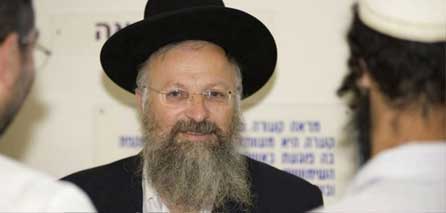
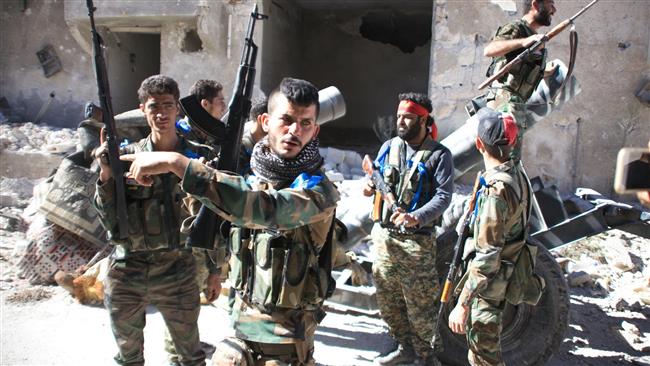
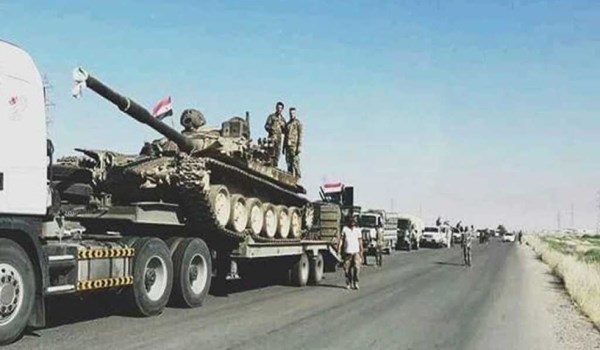
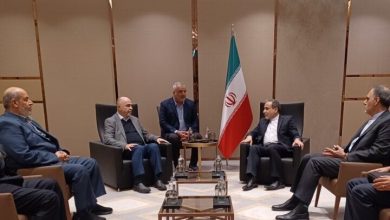
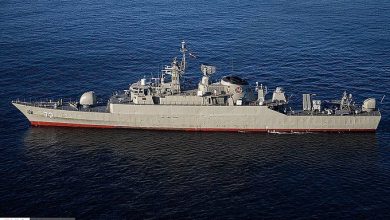
 |
|  The Iranian warship IRIS Alborz arrives in the Red Sea.
The Iranian warship IRIS Alborz arrives in the Red Sea.